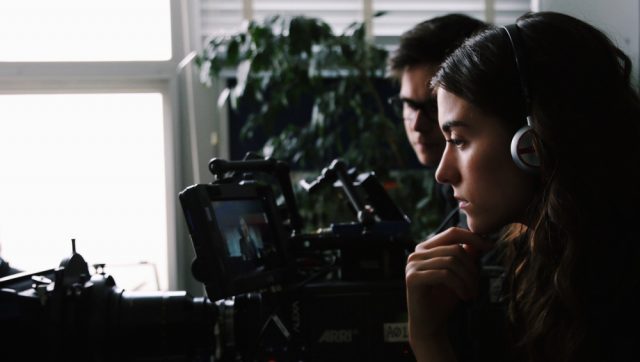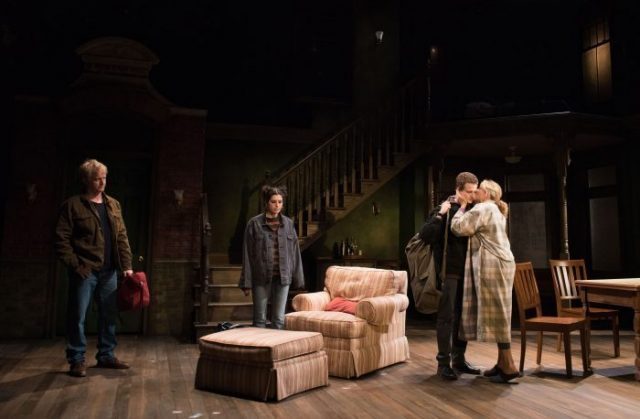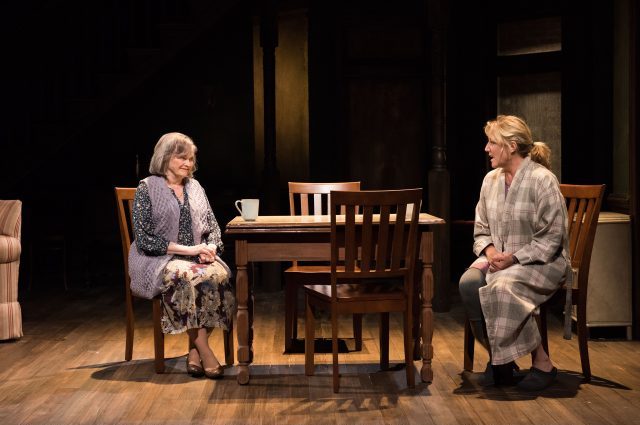
Quinn Shepard is a sextuple threat in sexy, hard-hitting teen drama Blame
BLAME (Quinn Shephard, 2017)
MoMA Film, Museum of Modern Art
11 West 53rd St. between Fifth & Sixth Aves.
Thursday, February 14, 4:00
Series runs February 14-21
212-708-9400
www.moma.org
www.samuelgoldwynfilms.com/blame
 Last summer, MoMA presented “The Future Is Female,” a week of independent features and shorts written, directed, and starring women, dealing with important issues of inclusivity and gender. The series is back for its second iteration, running February 14-21 and beginning with a recent head spinner. Twenty-two-year-old Quinn Shephard proves herself to be a sextuple threat in the daring, sexy teen thriller Blame. The New Jersey native wrote, directed, edited, produced, and stars in the film, in addition to writing the lyrics for several songs performed by Peter Henry Phillips. Her mother, Laurie Shephard, also produced and cast the movie, which takes place in a New Jersey high school where Abigail Grey (Shephard) has returned after a mysterious psychotic incident. She is immediately targeted by mean-girl leader Melissa Bowman (Nadia Alexander) and her trusted bestie, Sophie Grant (Sarah Mezzanotte), while the third member of the clique, Ellie Redgrave (Tessa Albertson), might be on the outs for showing sympathy for Abigail. Melissa sics her boyfriend, T.J. (Owen Campbell), and Sophie’s beau, Eric (Luke Slattery), on Abigail, taunting and teasing her, calling her Sybil, after the book and movie about a woman with multiple personalities. When Jeremy Woods (Chris Messina) takes over their drama class, he switches the play they’re presenting from Tennessee Williams’s The Glass Menagerie to Arthur Miller’s The Crucible, casting Abigail as protagonist Abigail Williams, who might be involved with witchcraft, and Eric as John Proctor, a married man she might be having an affair with. Melissa, who wanted the lead role, is furious when she is named Abigail’s understudy. When Eric doesn’t take things seriously, Jeremy steps in to play John, angering Melissa further as Abigail gets to spend more time with the rather attractive teacher, especially as she watches Abigail and Jeremy grow very close. And Melissa doesn’t like to lose.
Last summer, MoMA presented “The Future Is Female,” a week of independent features and shorts written, directed, and starring women, dealing with important issues of inclusivity and gender. The series is back for its second iteration, running February 14-21 and beginning with a recent head spinner. Twenty-two-year-old Quinn Shephard proves herself to be a sextuple threat in the daring, sexy teen thriller Blame. The New Jersey native wrote, directed, edited, produced, and stars in the film, in addition to writing the lyrics for several songs performed by Peter Henry Phillips. Her mother, Laurie Shephard, also produced and cast the movie, which takes place in a New Jersey high school where Abigail Grey (Shephard) has returned after a mysterious psychotic incident. She is immediately targeted by mean-girl leader Melissa Bowman (Nadia Alexander) and her trusted bestie, Sophie Grant (Sarah Mezzanotte), while the third member of the clique, Ellie Redgrave (Tessa Albertson), might be on the outs for showing sympathy for Abigail. Melissa sics her boyfriend, T.J. (Owen Campbell), and Sophie’s beau, Eric (Luke Slattery), on Abigail, taunting and teasing her, calling her Sybil, after the book and movie about a woman with multiple personalities. When Jeremy Woods (Chris Messina) takes over their drama class, he switches the play they’re presenting from Tennessee Williams’s The Glass Menagerie to Arthur Miller’s The Crucible, casting Abigail as protagonist Abigail Williams, who might be involved with witchcraft, and Eric as John Proctor, a married man she might be having an affair with. Melissa, who wanted the lead role, is furious when she is named Abigail’s understudy. When Eric doesn’t take things seriously, Jeremy steps in to play John, angering Melissa further as Abigail gets to spend more time with the rather attractive teacher, especially as she watches Abigail and Jeremy grow very close. And Melissa doesn’t like to lose.

Quinn Shepard, wrote, directed, produced, edited, stars in, and composed lyrics for for her feature-film debut, Blame
Blame is a carefully crafted, intimate tale of lust, jealousy, and obsession, capturing the complicated zeitgeist of high school life, the fear and trepidation along with the experimentation and confusion. In shifting from The Glass Menagerie to The Crucible, Shephard equates mental illness with witchcraft as seen through a feminist lens as her story parallels Miller’s, much as Amy Heckerling’s Clueless follows Jane Austen’s Emma (only without the laughs) and Roger Kumble’s Cruel Intentions is based on Pierre Choderlos de Laclos’s Les Liaisons dangereuses. The scenes between Shephard (Hostages, The Miseducation of Cameron Post) and Messina (The Mindy Project, Damages) are sizzling hot as teacher and student teeter on the edge of a major taboo. Shephard, who appeared in a high school production of The Crucible, also gets to show off her fab eyebrows, which are a character unto themselves. She is one talented filmmaker deserving of attention in an industry that must do a much better job cultivating, acknowledging, celebrating, and rewarding films by and about women. Blame is screening February 14 at 4:00 with Tourmaline and Sasha Wortzel’s fourteen-minute Happy Birthday, Marsha!, about trans artist and activist Marsha P. Johnson, followed by a Q&A with the filmmakers. “The Future Is Female, Part 2” continues with such other pairings as Nia DaCosta’s Little Woods and Crystal Kayiza’s Edgecombe, Kate Novack’s The Gospel According to André and Catherine Lee’s 9at38, and Josephine Decker’s Madeline’s Madeline and Eleanor Wilson’s Low Road, all followed by discussions.

